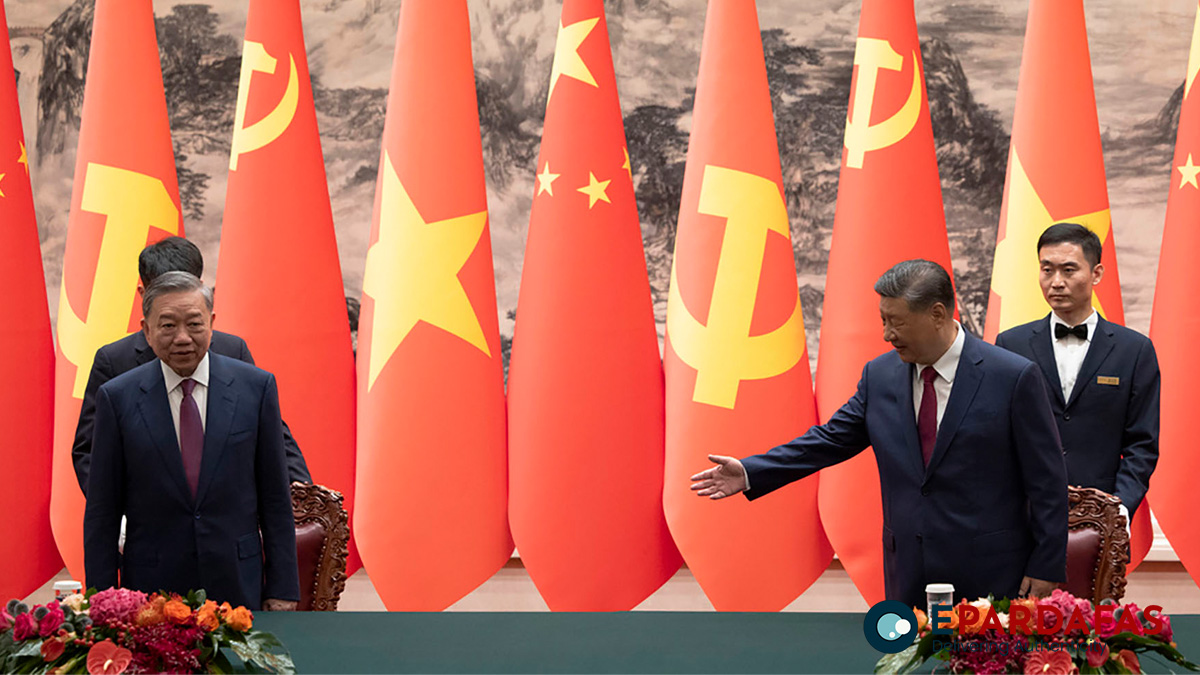
China and Vietnam Sign 14 Agreements Covering Cross-Border Railways, Trade, and More
On Monday, China and Vietnam signed 14 agreements on various topics ranging from cross-border railways to crocodile exports, following a meeting between Chinese President Xi Jinping and Vietnam’s new leader, To Lam, in Beijing.
This visit marks Lam’s first overseas trip since his appointment as the party chief earlier this month, highlighting the desire of both communist neighbors to strengthen ties amid growing trade and investment, despite occasional disputes over the South China Sea.
President Xi emphasized China’s commitment to its relationship with Vietnam, stating, “China has always regarded Vietnam as a priority in its neighborhood diplomacy.” He also expressed support for Vietnam’s adherence to Party leadership and the socialist path. Xi underscored the importance of establishing strong working relations and a personal friendship with Lam.
Lam reciprocated, describing the bilateral relationship as a “top priority in Vietnam’s external policy” and referred to his visit as an affirmation of Vietnam’s commitment to its relationship with China.
Among the signed documents were agreements on planning and feasibility studies for standardized railway routes, representing a new step towards upgrading cross-border rail links. This follows preliminary deals made during Xi’s state visit to Hanoi in December. The projects include connections through Vietnam’s northwest Lao Cai to the port city Haiphong, and a potential link from China’s Shenzhen to Haiphong.
The current rail connections between southern China and Vietnam’s northern industrial hub, Hanoi, date back to the French colonial era and differ in gauge from China’s high-speed rail. Upgrading Vietnam’s rail infrastructure is seen as a move to boost trade and investment, particularly as more Chinese manufacturers shift export-oriented operations to Vietnam amid trade tensions with the United States.
Other agreements covered cooperation between central banks, media, health, and the quarantine and inspection of agricultural products like coconuts, crocodiles, and durians.
After the signing, Xi and Lam continued their discussions over tea in what Chinese state media Xinhua described as a “cordial and friendly atmosphere.” The two countries are expected to issue a joint declaration on further strengthening their strategic partnership.
Lam’s visit, which began in Guangzhou, is a three-day tour that includes meetings with Chinese Premier Li Qiang and other top officials. While in Guangzhou, Lam visited sites where former Vietnamese President Ho Chi Minh conducted revolutionary activities.
China and Vietnam established diplomatic ties in 1950 and formed a comprehensive strategic partnership in 2008, which was further strengthened five years later to address shared international and regional concerns.













Comments